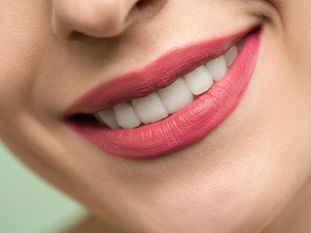BACLARAN | BF HOMES | BUENDIA | LAS PINAS |
SM CITY SUCAT | SM CENTER LAS PINAS


Occupational Hazards to Dental Health: How Your Career May Be Affecting Your Teeth
Mar 13, 2025
3 min read
0
27
0

Is Your Job Secretly Damaging Your Smile?
Many of us understand that diet, brushing habits, and regular dental visits impact our oral health. However, few realize that our careers can significantly affect our dental well-being. Certain professions come with unique occupational hazards that may be silently damaging your teeth and gums every workday.
High-Risk Careers for Dental Health
1. Bakers, Confectioners, and Food Tasters
Professionals who work with sugary foods face constant exposure to tooth-decaying substances. Bakers and confectioners often taste-test their creations throughout the day, while professional food tasters may sample dozens of sugar-laden products in a single shift. This frequent exposure significantly increases cavity risk, even with diligent oral hygiene.
Research published in the Journal of Occupational Medicine shows that food industry workers have a 27% higher rate of dental caries compared to the general population.
2. Professional Athletes and Sports Professionals
Contact sports athletes experience a high rate of dental trauma. A surprising 33% of basketball players have suffered dental injuries during their careers. Even non-contact sports pose risks—swimmers who train in chlorinated pools may experience "swimmer's calculus," a condition where the teeth develop yellow or brown staining due to prolonged exposure to chemically treated water.
3. Wine Tasters and Sommeliers
Wine professionals regularly expose their teeth to acidic substances. The average pH of wine ranges from 3.0 to 3.8, well below the 5.5 threshold at which enamel begins to erode. This consistent acid exposure can lead to significant enamel erosion and tooth sensitivity over time.
4. Factory Workers and Industrial Professionals
Those working in manufacturing environments may inhale industrial dust containing abrasive particles. These microscopic particles can wear down enamel over years of exposure. Additionally, stress from shift work or high-pressure manufacturing roles can lead to bruxism (teeth grinding), causing worn teeth and jaw pain.
5. Desk Jobs and Office Workers
Even seemingly low-risk office jobs pose dental hazards. Constant snacking at desks, coffee consumption, and stress-induced grinding affect many professionals. The "deadline effect"—where stress peaks before project completions—correlates with increased reports of temporomandibular joint (TMJ) problems.
Protecting Your Dental Health in Any Career
Regardless of your profession, you can take steps to minimize occupational dental risks:
Hydrate properly: Drink water frequently throughout the workday, especially after consuming acidic beverages or foods.
Create a workplace dental kit: Keep a toothbrush, toothpaste, and floss at your desk or in your locker.
Consider protective equipment: For contact sports or industrial work, wear appropriate mouthguards or masks.
Implement the 30-minute rule: Wait 30 minutes after consuming acidic foods or beverages before brushing to prevent brushing acids into your enamel.
Schedule regular dental checkups: Inform your dentist about your occupation so they can watch for profession-specific issues.
When to Seek Professional Help
If you notice symptoms such as increased sensitivity, visible wear on teeth, jaw pain, or recurring headaches, consult your dentist. These could be signs that your occupation is affecting your dental health.
Remember that preventative care is always less expensive and less painful than treating advanced dental problems. By understanding how your career might impact your teeth, you can take proactive steps to maintain that healthy smile for years to come.
Your career shouldn't cost you your smile—with awareness and proper precautions, you can protect your dental health while excelling in your chosen profession.





